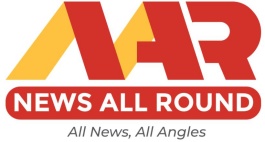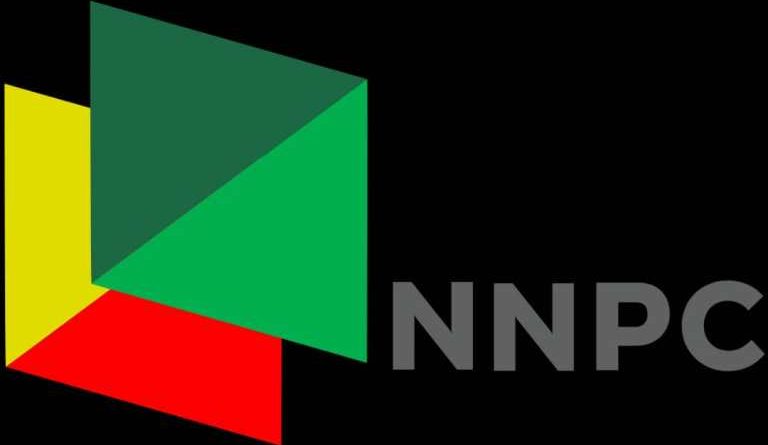SPECIAL REPORT: NNPC Ltd: When a National Cash Cow is overburdened
Trying to ride a willing horse to death has implications not only for hapless animal but for the rider himself who faces the prospect of being stranded and therefore unable to return to base.
This scenario clearly reflects the relationship between the Nigerian state and the Nigerian National Petroleum Company Limited.
For the decades it has existed, first as the Nigerian National Petroleum Corporation and then in the post-Petroleum Industry Act (PIA) era, the company has been a beast of burden of sorts, stoically bearing the burden of oiling the wheel of the nation to keep the ship of state on an even keel.
But even a willing horse or a sturdy beast of burden must reach its breaking point at least; a point at which though the spirit be willing, the flesh would scream for rest.
Of the many Nigerians who marvel at the billions of naira shared monthly by the tiers of government in Nigeria, not many have been interested in knowing the source of these funds. For those unaware, NNPCL plays a critical role in the generation of these funds.
Drawing an analogy with football, the NNPC Ltd. may be likened to a utility player able to adapt to any position in the field. The company has been shouldering the responsibility of ensuring that not only does a steady inflow of hard currency into the national treasury but also to ensure availability of petrol to motor owners and other users of the product.
This it has been doing consistently to the admiration of Nigerians and industry stakeholders.
The announcement on May 29, 2023 by President Bola Tinubu during his inauguration that subsidy on petrol had ended proved to be a watershed for the company as it continued to import petrol for supply key players in the industry. A fact unknown to Nigerians is that since that presidential declaration announcing the end of subsidy in May last year, the NNPC takes an over N600 shock for every litre of petrol consumed by Nigerians. This is obviously a humongous burden for one company to bear if multiple the figure by the millions of litres of petrol consumed daily in the country.
Whilst the NNPCL struggles with the crushing burden of stabilizing supply of petrol and ensuring it’s availability through importation, other actors in the Nigerian state reap untold benefits for doing little or practically nothing.
Before the ‘subsidy is gone’ declaration by President Tinubu, and the subsequent continued payment of under-recovery by the NNPCL, this burden was being shared by the government through its monthly allocations. Now, NNPC alone bears the load.
Since the announcement of the removal of subsidy, the amount available for sharing among the Federal Government and the other two tiers of government blalloned exponentially.
Figures for 2023 show that the states shared a whopping N3 trillion with projections from the 2024 approved budget indicating that they are poised to receive N2.4 trillion more than they did in 2023. The bulk of this revenue shared at FAAC meetings by the tiers of government come from activities of NNPC Ltd, which dovetail into oil exports, taxes, and other statutory allocations.
Under the current revenue-sharing formula, the federal government gets 52.68 per cent of the revenue, states 26.72 per cent, and local governments 20.60 per cent.
For the purpose of public record, here’s what the states got through FAAC in 2033 as detailed by Platforms Africa, ableading news platform dedicated to covering oil and gas in the country.
“Last year, governors got the most FAAC allocations in at least seven years after the petrol subsidy removal and currency reform reportedly delivered a 40 percent boost to income.
“An analysis of the 2023 FAAC monthly allocation revealed that the sub-national and LGs got the highest allocation of N627.73bn in September, followed by N610.5bn in December, N555.75bn in August, N533bn in November, N514bn in July and N497.97bn in October.
“Oil-producing states receive an additional 13 percent derivation fund, creating disparities in allocations — only nine (Abia, Akwa-Ibom, Bayelsa, Delta, Edo, Imo, Ondo, and Rivers) of the 36 states enjoyed this benefit in 2023. Interestingly, four of these nine states also ranked among the top ten highest FAAC recipients in 2023.
“Delta state received the highest FAAC allocation in the review period, receiving N483.57 billion. Rivers and Akwa Ibom followed closely behind, pocketing N426.84 billion and N380.1 billion, respectively. Lagos, Bayelsa, and Kano also featured prominently, securing N371.39 billion, N268.34 billion, and N261.37 billion, respectively. Conversely, Gombe state got the lowest allocation, receiving N99.05 billion, followed by Ebonyi with N107.45 billion and Ekiti received N107.5 billion.
“Among geopolitical zones, south-south, emerged as the top recipient, raking in a hefty N1.84 trillion, followed by north-west and south-west with N1.20 trillion and N1.10 trillion respectively.Further down the ladder north-central received N948.24 billion, north-east N807.30 billion and south-east N680.59 billion.”
Inevitably, as the monthly allocations received by state governors in Nigeria skyrocket the NNPC Ltd. takes the bullet and carries the financial burden.
This clearly, poses an existential threat to operations of the company.
Investigations show that the debt burden on the NNPCL will cross the $10 billion mark by the second quarter of 2025, barring the adjustment in present Nigerian financial structure.
The national oil company had, after a long period of silence, on Monday admitted that it was owing importers of Premium Motor Spirit (PMS) $6 billion.
Documents detailing deals between the company and some partners showed that the $6 billion debts would soon be dwarfed as the Nigerian state continues to push the burden of differentials between the landing cost and pump price of the product to it.
Already, the under-recovery for the last quarter (September to December) of 2024 is expected to push the total spending on differentials above N6 trillion, according to the supplementary budget foŕ the year.
At current rates, expenditure on fuel subsidy was, according to the initial projection by the Ministry of Finance, expected to reach 5.4 trillion naira by the end of 2024. This compares unfavourably with 3.6 trillion naira in 2023 and 2.0 trillion naira in 2022 according to a draft document published by Reuters on June 6, 2024.
Despite the huge strain on its finances occasioned by offsetting the differential between landing cost and pump price of petrol, the company under the adroit management of Mele Kyari, it has continued to perform excellently as a business entity. Latest figures for Financial Year (FY) 2023 show a record-breaking N3.3 trillion in Net profit and revenue of N27.99 trillion.
The figures show the NNPC Ltd to be a well-managed organization thriving amid a huge financial burden under which most firms would have buckled under. It is certainly no easy fit to record a 27.6 percent increase in profit for the 2022 figure of N2.58 trillion in the midst of enormous burden it is shouldering. It is without doubt a commendable feat, the biggest in the PIST-PIA era.
Understandably, Kyari is over the moon. The NNPCL’S Group Chief Executive Officer (GCEO ) who disclosed the figures at the company’s Annual General Meeting, said NNPCL’s sustained profitability reflects a corporation that is not merely surviving but thriving, demonstrating robust outcomes that underscore NNPCL’s operational efficiency and strategic foresight. To put the achievement in proper context, the company with a gross profit of ₦7.04 trillion and an operating profit of ₦4.34 trillion, NNPCL achieved a net profit of ₦3.3 trillion at the end of 2023.
These impressive results signify a solid net profit margin of 14% and an operating profit margin of 18%, demonstrating the company’s adeptness at converting revenue into substantial profits. In addition, NNPC Limited’s 2023 financial results showcased a 12% return on equity (ROE) as of FY2023 and maintained a current ratio of 1:1, reflecting a balanced approach to asset and liability management.
Notably, the company’s debt-to-assets ratio stood at a mere 1.8%, highlighting prudent financial management and a robust balance sheet.
Amid the chest-thumping and back-slapping by Kyari and his management team, the NNPCL helmsman recognized the necessity of taking cold, hard defisions, which though unpalatable to Nigerians, would ensure the survival of the company. With debts mounting and the burden on the company not abating, it has adjusted pump price of petrol from N617 to between N855 to N897 per litre.
As far as it goes, it is a sensible business decision anchored on the need to ensure survival of the company and to continue to guarantee sustainable supply of petrol in the country. It goes without saying that the collapse of NNPCL as an organisation will have ripple effect not only in the oil and gas industry but will have ramifications for the security and survival of the nation.
Bayo Onanuga, Special Adviser to the President on Information and Strategy, understands quite clearly the predicament of Kyari and his team at NNPC Ltd.
Writing recently on his X handle, the presidential aide said NNPC will go bankrupt if it continued to pay the difference between the landing cost and petrol price, the national oil company will go bankrupt.
He said NNPC’s debt was a result of the company’s efforts to absorb rising petrol costs and protect Nigerian consumers, rather than any government deception.
“NNPC cried out recently because it can no longer sustain the price differential on its balance sheet without becoming insolvent,” he said.
“The situation has greater implications for the ability of the three tiers of government to function as the NNPC has failed to pay into the Federation Account, the money that should go to the government.
“There are no easy choices. Something must be done to make NNPC survive, and keep the engines of government running and petrol flowing at the pumps”, Onanuga said.

